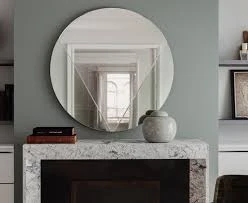

Thick Float Glass Properties, Applications, and Benefits
Thick float glass, a term referring to glass that is produced using the float glass process with a thickness greater than 6 mm, has become increasingly significant in various architectural and industrial sectors. Unlike its thinner counterparts, thick float glass boasts unique properties and applications that contribute to its demand and usage across a wide range of fields.
The float glass process, developed in the 1950s, involves the production of glass by floating molten glass on a bed of molten tin. This method leads to a smooth, uniform thickness, which is essential for high-quality glass manufacturing. When glass is produced in thicker profiles, it benefits from increased strength and durability. The physical attributes of thick float glass include improved thermal insulation, resistance to breakage, and enhanced sound insulation properties, making it an ideal choice for various applications.
One of the most prominent uses of thick float glass is in the construction industry. It is commonly used for large windows, facades, and glass walls in commercial and residential buildings. The thickness of the glass not only supports its strength but also provides better safety and security. Thicker glass can withstand higher wind loads and resist impacts, which is crucial in areas prone to extreme weather conditions.
In addition to its use in architecture, thick float glass finds its application in the automotive industry. It serves as a vital component in the manufacturing of windshields and rear windows, where safety and clarity are paramount. Thicker glass is less likely to shatter upon impact, thereby providing enhanced protection to passengers. The automotive industry continues to evolve, and manufacturers are increasingly opting for thick float glass solutions to meet safety regulations and consumer demand for durability.

Moreover, thick float glass is utilized in specialized applications such as glass doors, tabletops, and display cases. Its aesthetic appeal combined with its robustness makes it a popular choice for high-end retail stores and showrooms. Consumers are drawn to the sleek and modern appearance of thick glass, which adds sophistication to any space. Additionally, its resistance to scratches and stains enhances the product's longevity, making it a worthwhile investment for businesses.
Another noteworthy aspect of thick float glass is its energy efficiency. When incorporated into buildings, it can significantly improve thermal insulation. This property not only helps in maintaining comfortable indoor temperatures, but it also reduces energy consumption, which is a vital consideration in today’s environmentally-conscious world. As sustainability becomes increasingly important, many architects and builders are turning to thick float glass as a viable solution in their designs.
The manufacturing process of thick float glass also allows for a high degree of customization. It can be produced in various colors, tints, and finishes to meet specific aesthetic and functional requirements. Additionally, thick float glass can be treated with coatings that enhance its performance, such as anti-reflective coatings and low-emissivity coatings. These features make it adaptable to different environments and client preferences.
In conclusion, thick float glass plays a crucial role in modern design and construction. Its unique properties, such as strength, safety, aesthetic versatility, and energy efficiency, make it a highly sought-after material across various industries. As innovations in glass manufacturing continue to advance, the applications and benefits of thick float glass are likely to expand even further. With an increasing emphasis on sustainability and energy efficiency, thick float glass stands out as a superior choice for architects, builders, and manufacturers looking to enhance both functionality and aesthetics in their projects.